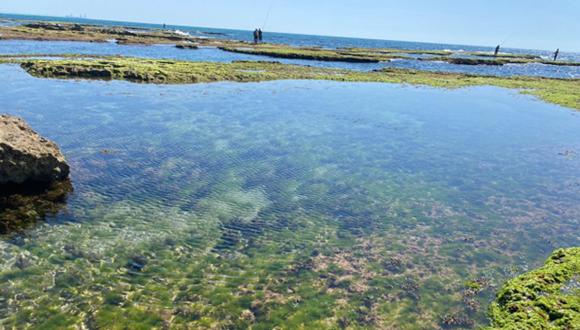דוקטורנטים מספרים - Nabeel Gnayem
Sea Weeds a source of omega 3 to mitigate human diseases
Nabeel Gnayem (Ph.D. candidate)
Supervisor: Prof. Alexander Golberg
I have been living with my family in Baqa El Garbiya in Israel since 1964, that lies about 10 km east of Caesarea, located on the shores of the Mediterranean Sea. Baqa El Garbiya is a small town in the triangle and it is regarded as one of the most active agricultural areas in the country, with an abundance of vegetable growers and greenhouses. Therefore, growing up in this rural town, it was natural for me to and absorb the love for earth, nature and agriculture. That is what motivated me to study agronomy and to earn a BSc. and MSc. from the Hebrew University, in the faculty of agriculture in Rehovot. These studies qualified me to work as an agronomy expert in the Ministry of Agriculture for 20 years, advising farmers who grew vegetables and strawberries how to improve their crops. I spent another 10 years breeding hybrid seeds of tomatoes, peppers and cucumbers in research and development.
Marine agriculture attracted me as well, thus I started my Ph.D. research on seaweeds (Macroalgae) as a source for ocean cultivated food. A major part of the research is conducted at the Porter school and Triangle Research and Development Center (TDRC) in Kfar Qara under the supervision of my advisor, Dr. Alexander Golberg. My research involves exploring the potential of seaweeds as an economical source of omega fatty acids by cross breeding new hybrids to contain high value fatty acids that are essential for preventing cardiovascular disorders and Alzheimer’s disease. The research will screen a wide range of wild strains to select the most suitable parental lines to be used in cross- breeding. These hybrids will be a valuable asset that can be grown in brackish sea water in ponds on land for the production of biomass.
My research provides an alternative for harvesting natural seaweed from the ocean. In this way, we can prevent disturbing the ecosystem balance which has a significant impact on the marine environment. Moreover, using algae for the production of fatty acids could mitigate the problem of “overfishing” and extinction of some fish species.


